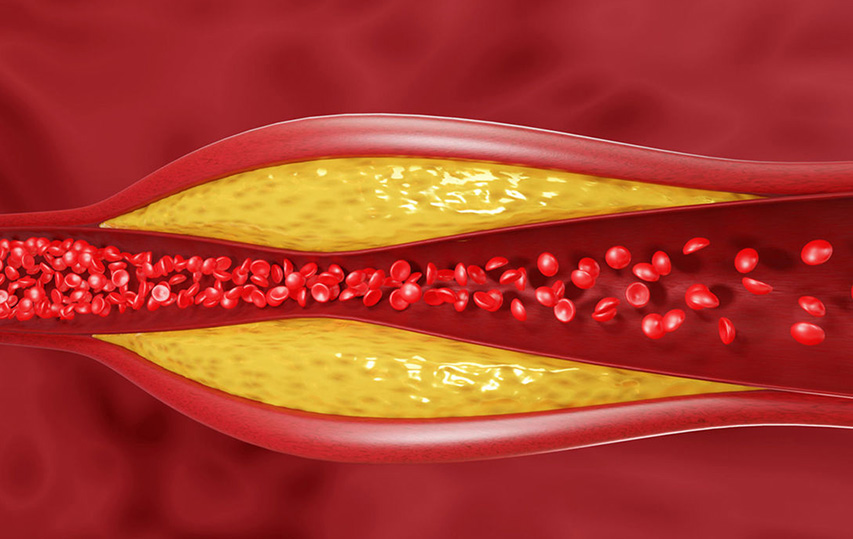The Cholesterol Myth: Why Lowering It Isn’t Always the Answer
The Cholesterol Myth: Why Lowering It Isn’t Always the Answer

What if I told you that most people who die from heart attacks don’t have high cholesterol?
That’s not a clickbait line or a conspiracy theory. It’s a medical fact—one that challenges decades of conventional wisdom. We’ve been taught to fear cholesterol as the cause of heart disease. But what if that story is incomplete?
It’s time to take a more honest, more intelligent look at what’s really happening in the body—and why cholesterol might not be the enemy we’ve made it out to be.
Cholesterol: The Suspect Who Might Be Saving the Scene
For years, we’ve been told that high cholesterol clogs arteries, causes atherosclerosis, and leads to heart attacks. But not all heart attacks involve clogged arteries. And not everyone with high cholesterol has heart problems.
A massive U.S. study reviewed nearly 140,000 patients admitted for heart attacks. If high cholesterol were the direct cause, most of these patients should have had elevated levels. But surprisingly, most of them had normal cholesterol.
So what does that mean? It means cholesterol might be present, but that doesn’t make it guilty. Just like firefighters are at the scene of every fire—but they didn’t start the blaze—cholesterol shows up because something else is going wrong.
Longevity and High Cholesterol: The Okinawa Puzzle

In Okinawa, Japan—famous for having one of the world’s longest-living populations—scientists found something unexpected: many of their centenarians had high cholesterol.
That doesn’t match the cholesterol-equals-heart-disease narrative. If cholesterol truly causes early death, how did these people make it past 100?
Clearly, cholesterol alone doesn’t tell the whole story. And lowering it blindly may not be the life-saving strategy we’ve believed it to be.
The Real Villain: Chronic Inflammation
What truly drives many heart attacks is chronic inflammation. It damages the inner lining of your blood vessels. In response, your body increases cholesterol production to help repair the damage.
So rather than being a culprit, cholesterol may be the body’s emergency response team—patching and healing stressed blood vessels. The real issue arises when the inflammation never stops, forcing the body into a constant state of repair. That’s when arteries stiffen, plaques grow, and risk skyrockets.
And not all heart attacks even involve plaques. Some are triggered by vasospasms, arrhythmias, mitochondrial dysfunction, or oxidative stress—none of which are caused by cholesterol alone.
So… What Should We Focus On?
Let’s focus on the why, not just the what.
- Why is the body making more cholesterol?
- Why is the system inflamed?
- What’s driving oxidative stress and metabolic dysfunction?
It turns out that addressing nutritional deficiencies and inflammation is far more powerful than just chasing a lower cholesterol number.
Supportive nutrients like:
- Magnesium
- L-arginine
- CoQ10
- Omega-3 fatty acids
- Resveratrol
…help support vascular health, mitochondrial function, and cellular resilience—all while reducing inflammation from the root.
The Real Villain: Chronic Inflammation
Here’s something worth remembering:
If cholesterol were truly dangerous, evolution would’ve phased it out.
Instead, it’s essential to your survival. Every cell membrane in your body relies on it. Your brain, hormones, nervous system, and vitamin D synthesis all depend on cholesterol.
And here’s the kicker: about 80% of your cholesterol is made by your body—not eaten. That alone should make us pause. Instead of asking, “How do I lower it?” maybe we should be asking, “Why is my body producing more?”
The Statin Question
Let’s be clear—statins have a place in medicine. For some people, especially those with a personal or family history of cardiovascular disease, they can be life-saving.
But we should stop treating elevated cholesterol as a disease by itself. It’s a symptom, a signal—not always a red alert, but certainly worth investigating further. The key is context.
Final Thought: Heal the System, Not Just the Number
If we want to prevent heart disease and promote real health, the goal shouldn’t just be to lower a number. It should be to understand what that number means, and to address the underlying causes.
So instead of fearing cholesterol, let’s focus on:
- Reducing chronic inflammation
- Nourishing the body with key nutrients
- Supporting mitochondrial and vascular health
- Listening to what the body is trying to say
Health is complex. And that’s a good thing—because it means we have more ways to protect and improve it than we’ve ever been told.




